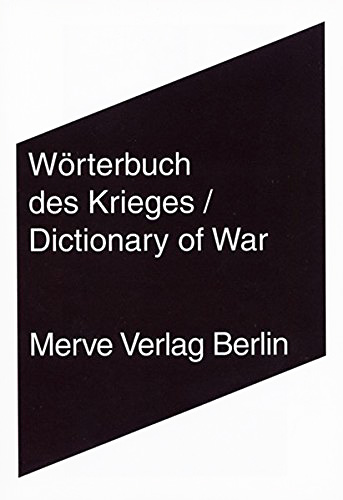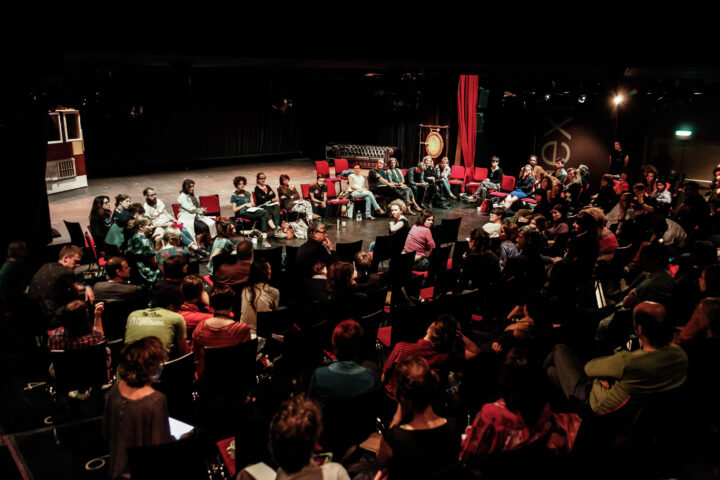“At least, when we create concepts, we are doing something.” The idea of a Dictionary of War refers first to the theory of concept formation proposed by Deleuze and Guattari: Concepts have to be invented, created, manufactured; concepts refer to problems without which they could have no effect. It is about polemics in several respects: on the one hand, it is about an art of argument that seeks to confront a reality that is characterised by the fact that power relations tend to be obscured the more there is talk about war and peace. On the other hand, it is a matter of identifying the extent to which war can serve as an “analyser of power relations” (Foucault) that constitute the current upheavals.
Dictionary of War is a collaborative platform for the production of terms. The project’s website documents 100 terms on the topic of war that were formed, presented and published by scholars, artists, theorists and activists in four public events, each lasting two days, in Frankfurt, Munich, Graz and Berlin over the past twelve months. The contributions in the present volume form an independent supplement and expansion of these already elaborated 100 terms.
With contributions by The Erroists, Jonathan Allen, Eric Alliez, Franco Beradi Bifo, Ulrich Bröckling, Jordan Crandall, Dietmar Dath, Katja Diefenbach, Felix Ensslin, Avery Gordon, Stefan Heidenreich, Darius James, Lawrence Liang, Sylvère Lotringer, Raqs Media, Ariane Müller, Antonio Negri, Jan Ritsema, Irit Rogoff, Martha Rosler, Saskia Sassen, Florian Schneider, Shuddhabrata Sengupta, Nicolas Siepen, Ingrid Strobl, Ines Weizman, Eyal Weizman, Meir Wigoder, Raul Zelik
Project Webseite
Dictionary of War



